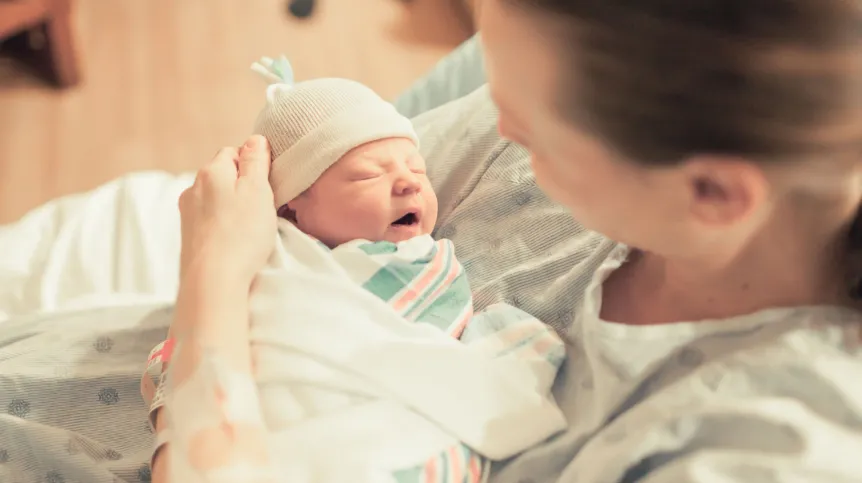
A non-commercial study by Polish scientists may help reduce the percentage of premature babies with serious breathing disorders, reports the Medical Research Agency, which is financing the project.
Scientists are currently recruiting patients to participate in the REFSAL clinical trial 'Evaluation of frequency occurrence persistent pulmonary hypertension of newborns in group of newborns born between 32 and 42 weeks of pregnancy treated by salbutamol'.
One of the most common causes of respiratory failure in children is transient tachypnea of the newborn (TTN). It usually occurs in children born prematurely or by caesarean section. For example, it is diagnosed in 10 percent of newborns born between the 33rd and 34th week of pregnancy. In some cases, this disorder can lead to persistent pulmonary hypertension of newborns (PPHN).
For years, doctors have been looking for a way to reduce the number of newborns with breathing disorders after birth, including newborns suffering from severe pulmonary hypertension.
Observations of some experts and previous clinical studies conclude that early use of inhaled salbutamol can alleviate the course of severe TTN. This drug from the beta-mimetics group is commonly used in asthma. However, there are no results of clinical studies that would allow for its standard use in children with TTN.
Consequently, scientists have designed the REFSAL study, in which the effectiveness and safety of salbutamol in a nebulisation solution in preventing pulmonary hypertension in newborns with transient breathing disorders will be evaluated.
'We will check how often persistent pulmonary hypertension occurs in newborns with TTN and examine the effects of using salbutamol', says the project’s lead researcher Professor Renata Bokiniec from the Duchess Anna Mazowiecka Clinical Hospital.
'If the REFSAL study confirms our assumptions, we have a chance to effectively prevent serious complications, reduce the frequency of life-threatening persistent pulmonary hypertension of newborns, and thus shorten the time of their treatment, stay in an incubator and separation from the mother', says Professor Bokiniec.
REFSAL is the first non-commercial research project in the field of neonatology in years; it is financed by the Medical Research Agency. The leader of the project is the Medical University of Warsaw, and eight specialist centres located all over Poland have been invited to participate - in Warsaw, Krakow, Poznań, Zielona Góra, Bydgoszcz, Rzeszów, Bytom, Szczecin - as well as experts from Canada. (PAP)
jjj/ zan/ kap/
tr. RL













